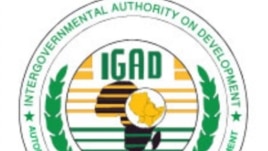News / Africa
South Sudan: IGAD Unveils New Power Sharing Proposal
Last updated on: June 15, 2015 7:59 AM
The document released last week proposes giving President Salva Kiir's government "a majority in the legislature, the positions of President and Vice President and 53 percent of ministerial portfolios."
Former vice president Riek Machar's armed opposition group would have the second largest number of seats in the National Assembly, along with "the new position of First Vice President and 33 percent of ministerial portfolios," the document says.
A group of former political detainees and other political parties will share 14 percent of ministerial portfolios between them and hold an unspecified number of seats in parliament.
Conflict-affected states
In the three states that have been hardest hit by the 18-month conflict - in Jonglei, Unity and Upper Nile - IGAD proposes giving Machar's opposition movement 53 percent of ministerial portfolios. The ruling Sudan People's Liberation Movement (SPLM) would hold 33 percent of cabinet positions in those states, and the remaining 14 percent of ministerial posts would be shared equally between the former detainees and other political parties. IGAD says this will "ensure the reform of governance in these areas."The IGAD proposal also provides for a transitional government of national unity to become operational three months after the signing of an agreement to end the conflict. The transitional government would remain in power for 30 months.
IGAD proposes holding elections in South Sudan 60 days before the end of the transitional government's term.
The document was presented to government and rebel negotiators last week in Addis Ababa.
The lead negotiator for Machar's rebels, Taban Deng Gai, faulted the IGAD proposal for maintaining the status quo in South Sudan, by keeping President Kiir at the helm of the national government and giving the ruling SPLM a majority in parliament.
Gai also complained that the IGAD proposal focusses solely on the fighting in Jonglei, Unity and Upper Nile states, and ignores unrest in other parts of the country. But he said that, because the document is not final and binding, the rebels are willing to work with it.
The government's lead negotiator, Nhial Deng Nhial, did not comment last week on the IGAD proposal.
COMMENTS:
================

No comments:
Post a Comment